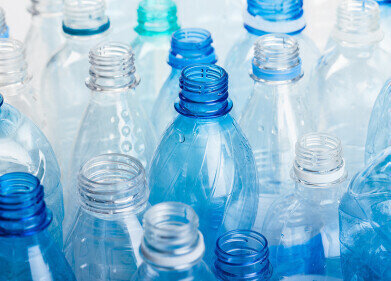Waste Management
What Are the UKs Landmark Reforms to Tackle Plastic Pollution?
Apr 29 2021
The UK government is one step closer to enacting a series of “landmark reforms” geared towards tackling plastic pollution. The issue is widespread across the world, with an estimated eight billion tonnes of plastic entering our seas and oceans each year. Once there, it can break down into potentially even more dangerous microplastics, posing a serious threat to marine plants and animals.
With that in mind, the government are keen to address the issue by preventing the plastic from contaminating the environment in the first place. To do so, they have come up with three concrete reforms which are aimed at making industry more responsible for the waste they create and encouraging consumers to participate in recycling schemes.
Deposit Return Scheme
The first initiative put forward by the government is a deposit return scheme, whereby consumers will be incentivised to return empty drinks containers to return points at supermarkets and stores across the country. In bringing the containers back to the point of sale (or to an alternative outlet), they will be rewarded via a money-back or money-off discount, the details of which are yet to be decided.
At present, it’s believed that Britons consume 14 billion plastic bottles, nine billion aluminium cans and five billion glass bottles on an annual basis. This scheme would help to reduce that consumption and will apply to England, Wales and Northern Ireland, while a separate initiative is already in development in Scotland.
Extended Producer Responsibility
One of the chief recommendations from the scientific community on how to tackle the problem of plastic pollution is to trace it back to its source. At present, the large food and drinks manufacturers who are responsible for generating almost 12 million tonnes of packaging each year face no legal obligation to facilitate the clean-up of that mess once it has served its purpose.
Under the proposed new laws, manufacturers will now be held accountable for all costs associated with the managing and recycling any waste that they generate. If they create packaging that does not lend itself well to recycling, higher fees may be charged. This initiative will be deployed on a UK-wide basis once the consultations on the specifics have been completed.
Recycling Consistency
The final reform, which is still in the initial stages of discussion, is aimed at standardising how materials are recycled in both homes and businesses across England. This is intended to make it easier for consumers to know how they can responsibly recycle all types of items in their home and at work, thus encouraging greater uptake of the practice.
The average percentage of waste recycled by homes in the UK is around 45% and has been at the same threshold for many years. With this last reform, which is expected to enter the consultation stage in the imminent future, it’s hoped that the percentage can be boosted even further as more people invest in doing their bit for the environment.
Events
Apr 22 2024 Hannover, Germany
Apr 23 2024 Kuala Lumpur, Malaysia
Apr 24 2024 Sao Paulo, Brasil
May 05 2024 Seville, Spain
May 13 2024 Munich, Germany













